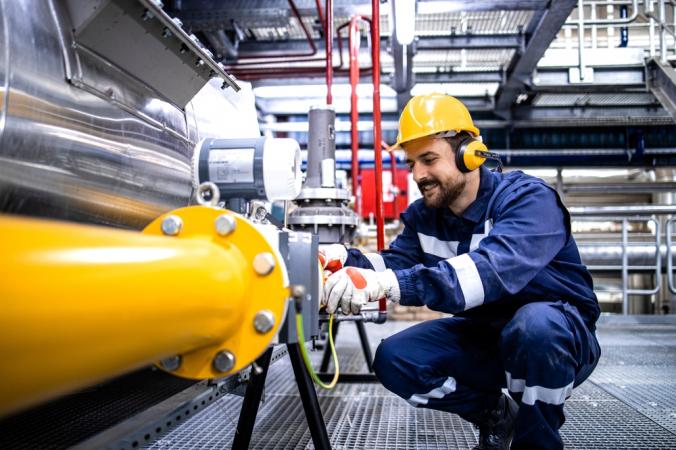Smart Manufacturing with Smart Machines
In a unique pilot project, agricultural machinery manufacturer John Deere is transitioning its production workflows to smart manufacturing with IBM. Logistics processes control themselves; the Watson AI platform helps workers by giving precise instructions. It’s a model for the future of manufacturing.
Every one of the John Deere's huge tractors is made-to-measure. No customization request is too outrageous. That is an immense challenge for manufacturing systems, and one that requires processes to be both perfectly attuned and highly flexible - no one can afford bottlenecks here. For the agricultural machinery expert, paving the way to digital factories was the obvious choice.
The thinking, talking computer
IBM and John Deere are currently working on integrating cognitive maintenance: If there ever is a manufacturing problem, IBM's Watson deep-learning platform comes into play. The worker takes a photograph of their workstation, and the artificial intelligence uses an image recognition algorithm to determine the cause of the fault. One voice command is all it takes for Watson to explain how to fix it. Need a specialist? The system checks the schedules and suggests the best time for maintenance, taking possible synergy effects into consideration at all times.
In the factory of the future, many processes can be fully automated.
– For example, production managers can use rules to define which processes are triggered in the event of deviations. This is critical for autonomously controlled production workflows that significantly reduce human workloads in factories, IBM forecasts.









